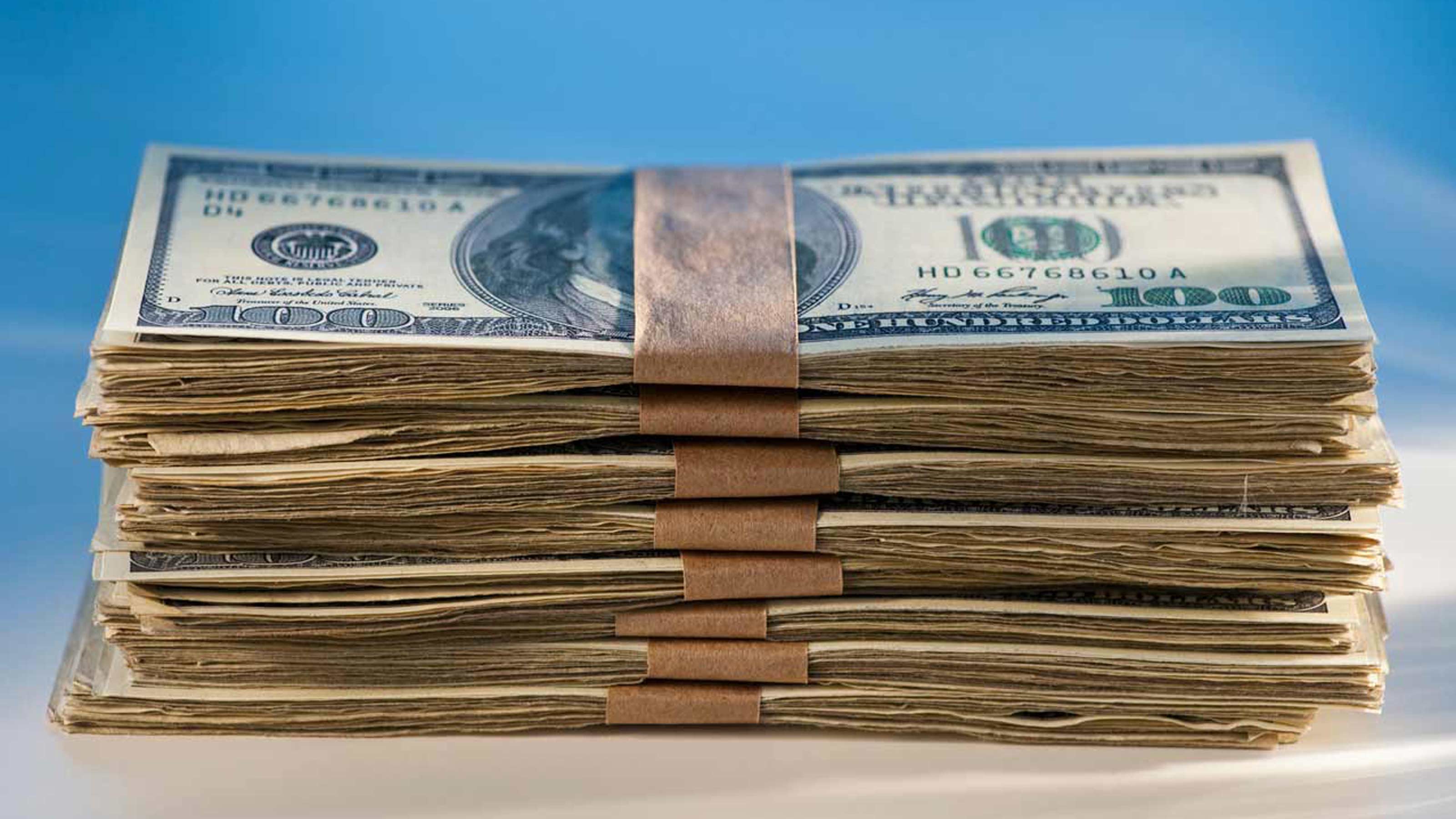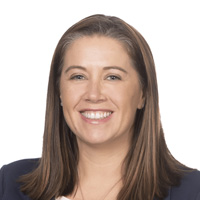How to Navigate Emergency Funds in Urgent Times
COVID-19 has revealed cracks in many people’s financial plans, and emergency funds have never been more important.


Profit and prosper with the best of Kiplinger's advice on investing, taxes, retirement, personal finance and much more. Delivered daily. Enter your email in the box and click Sign Me Up.
You are now subscribed
Your newsletter sign-up was successful
Want to add more newsletters?
Market volatility is at record rates. The numbers have gone up and down like a tiny plane hitting turbulence, and it’s hard to know when we’ll stabilize. Over one-eighth of the workers across the country are taking unemployment right now. Despite relief measures, businesses are still closing, loans are defaulting, and the economy will likely be hurting for a long time.
That’s what makes the results of a recent survey by NEFE interesting. Instead of a discussion on foreclosures and diminished retirement plans, the No. 1 concern for respondents was a lack of emergency funds.
Emergency funds are among the least sexy topics in finance. It’s something your adviser is probably always yelling at you about: You need three to six months of income sitting in a deep freeze just sitting there, in case of job loss, the next global pandemic, etc. Yet, despite its lackluster appeal, this topic, no doubt, is on many of our minds.
From just $107.88 $24.99 for Kiplinger Personal Finance
Become a smarter, better informed investor. Subscribe from just $107.88 $24.99, plus get up to 4 Special Issues

Sign up for Kiplinger’s Free Newsletters
Profit and prosper with the best of expert advice on investing, taxes, retirement, personal finance and more - straight to your e-mail.
Profit and prosper with the best of expert advice - straight to your e-mail.
It’s not fun to fill the deep freeze with cash with little to no growth and to sit on our hands when we want to reach for it. It’s also not fun to have the deep freeze be empty when you need to dip into it.
So let’s look at a couple of questions when it comes to this basic building block of a financial plan.
What is an Emergency Fund?
The short answer is enough money to cover expenses for several months. The experts are split on the time period — some recommending just three months and some dogmatic about the full half-year.
The reasoning is straightforward enough: None of us knows what’s going to happen. Those of us who have lived through prolonged bear markets have seen things like this. We’ve seen cherished employees get laid off or the bottom drop out of the housing market. Also, if you’ve lived long enough, you know life can get very strange. We’ve seen our share of famous, super-wealthy singers and athletes go broke after injuries and scandals, and know that money can disappear quickly, no matter what the sum.
The emergency fund is supposed to keep life normal. That is perhaps what drew everyone’s attention to it on this survey: Coronavirus life is anything but normal. The virus, quarantine and economic vertigo have centrifuged our financial plans to see how strong they are and our emergency plans to see how prepared we are.
Are We in an Emergency Right Now?
The answer to this question is individual. Some of you have had to watch your outflow a little more carefully, but other than that, not much has changed. Some of you have lost your jobs. Many of us are somewhere in the middle.
One thing we have learned from this odd, virus-driven situation: Your emergency will cause your finances to leak, but will not usually drain them. However, emergencies create ripple effects that can turn an inconvenience into a crisis. Some common emergencies:
- Car repairs: If you can’t drive to work, you can’t make money.
- Medical needs: If your body breaks down, you can’t do your job. You might have insurance, but you often don’t have enough.
- Job loss: This goes without saying, but the quarantine downturn has led to layoffs in record numbers.
- Getting married or divorced: You marry into debt, and now your student loan has another digit. Or your marriage falls apart, and your income stream drops a digit.
- Having to move: Moving your household always takes longer and costs more than you think it will. A company might help defray the cost, but it’s rarely enough.
The list goes on. Sometimes dramatic, but usually not.
In my own family, it happened right at the beginning of quarantine. We were in the midst of hearing conflicting health reports and watching the stock market start to shake, uncertain of our own future income, and my stepson broke his ankle. Again, it’s not earth-shattering stuff really, but we had to make sure we had the resources on hand to get the care he needed. We also had to have tween supplies on hand: plenty of video games and junk food for his recovery.
But this is how emergencies go. They come suddenly and usually aren’t dramatic. They are a slow drain on our finances, and it’s difficult to tell how far their effects will reach, especially when compounded by circumstances like COVID-19.
When Someone Else’s Emergency Becomes Your Own
Chances are, as a money-smart person educating yourself on financial matters, you might have been reasonably prepared for this down market. You might have been able to move some money around or cut back and sail on.
But your young adult kids might be lost at sea. That’s where our definition of emergency gets expanded, whether we like it or not. The number of middle-aged people with solid savings, let alone a solid emergency account, is very low. The number of prepared young people is even lower.
In my own practice, I’ve seen clients able to support themselves well, and yet the kids’ mortgage/rent or student loan payments or grandkids' medical bills have hit their emergency fund hard.
One Guarantee
The virus is an emergency, to varying degrees, for all of us. For much of the world right now, we can see numbers going back up, businesses opening, even some jobs being reinstated. There’s no guarantee there, but it seems to be good news.
The one guarantee: There will be another emergency, another time to tap that fund.
If you didn’t have to dip into it this time, count yourself very lucky, and make sure you assess what’s there.
Use This Emergency to Assess Your Own Financial Health
We can let the disruption of the virus give us perspective. We can turn around these circumstances to help us better ourselves and our financial outlook. The emergency fund is a great indicator of our overall financial health, so it’s no surprise that it was a top financial concern, and it helps us keep our other investments and concerns in place.
Take a Look at Your Outflow
If you lack an emergency fund, it may have to do with your spending habits and lack of planning. Has the disruption of the quarantine shed some light on where your money is going?
Eating out, spontaneous stay-cations, forgotten subscription services — these are those small pieces that add up quickly. When we’re trapped in our homes with less to do, these expenses may come into our field of attention. How much are they costing us over time?
Take a Look at Your Inflow
If your emergency fund isn’t sufficient and spending isn’t the problem, then maybe the disruption of quarantine has helped you see that your income needs repair. Your budget may be as tight as possible, and the financial gauge of your emergency fund is still low.
Is your job providing the income you want for you and your family? Again, let the disruption become your perspective. The clarity these circumstances offer can help you determine if you need better employment, to go back to school or to negotiate a raise.
Now’s the time to take perspective and take action, and make an emergency fund a top priority. For most of us, quarantine is just the kind of low-grade urgency that puts our contingency plans to the test.
Without an emergency fund, every bump in the road becomes a crisis. With a fund in place, even a crisis can become a bump in the road.
Profit and prosper with the best of Kiplinger's advice on investing, taxes, retirement, personal finance and much more. Delivered daily. Enter your email in the box and click Sign Me Up.

Erin Wood has over two decades of experience humanizing financial planning. As SVP of Advanced Planning at AssetMark, Erin leads innovation for new wealth solutions, secures strategic industry relationships and oversees a team of specialists who work directly with advisers and their high-net-worth clients. Erin focuses on delivering tailored strategies for estate planning, tax efficiency, retirement planning and multigenerational wealth transfer to help financial advisers keep up with evolving client demands.